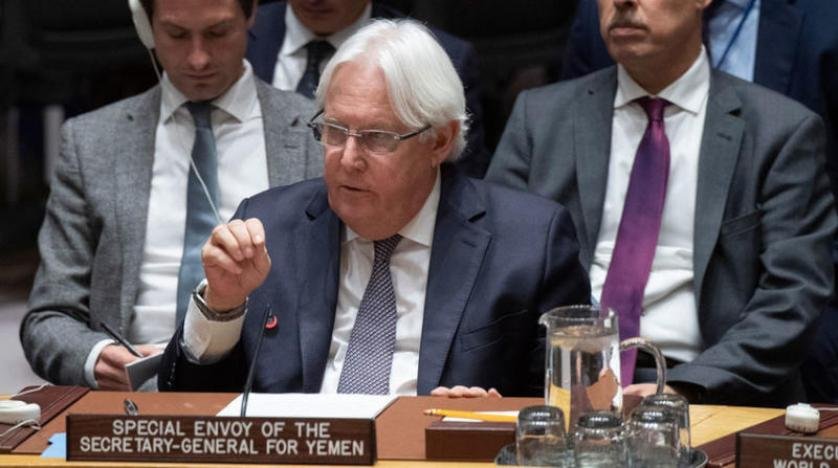Griffiths Confirms Not Receiving Houthi Approval on Access to FSO Safer

Thursday 12 November 2020
SMA News – Yemen
The UN Special Envoy to Yemen, Martin Griffiths, on Wednesday urged warring Yemeni parties to take final decisions required to bring the negotiations on a Joint Declaration to fruition, adding that Houthi militias are yet to grant approval on access to the derelict Safer oil tanker.
In a videoconference briefing to the UN Security Council, Griffiths confirmed that he has been mediating the text of the Joint Declaration for many months, calling it a “painstaking process” that is faced with many challenges along the way.
“The same challenges have been coming up repeatedly, particularly with regard to the economic and humanitarian measures, as you know, the second item within that overall agreement,” Griffiths told the UNSC.
Even though Griffiths said he had been working with all concerned parties, he went on to stress that he is a “mediator not a negotiator.”
Admitting to being struck by the example of the meeting recently held in Switzerland on the release of prisoners and detainees, Griffiths said: “We were able to bring the two parties to meet and successfully to produce a result that gave hope to so many Yemenis.”
But compared to the release of prisoners, the issues in the Joint Declaration are more challenging and more fundamental to the politics of this conflict and the situation on the ground.
“I don’t underestimate the challenge,” Griffiths said.
As for the Safer oil tanker dilemma, Griffiths complained that negotiations with Houthis have been “slower than an issue of this urgency and magnitude requires.”
“The UN has been trying to negotiate access for months for the expert mission to conduct an assessment of the condition of the vessel, undertake initial repairs, formulate recommendations on what is required to avoid a spill,” he said.
“We are yet to receive the approvals needed for that mission to move,” he added.
The Safer tanker is carrying 1.1 million barrels of crude oil and has been stranded for more than five years. The UN has warned that the vessel could spill four times as much oil as the 1989 Exxon Valdez disaster off Alaska.






